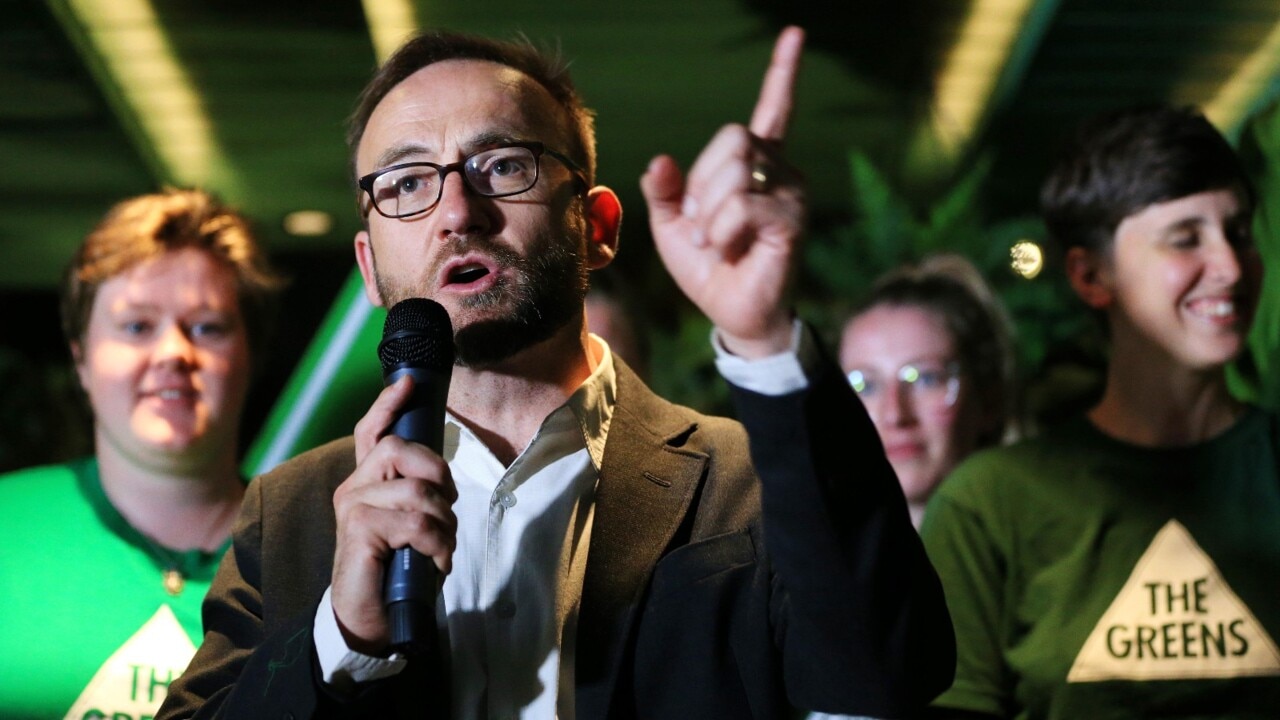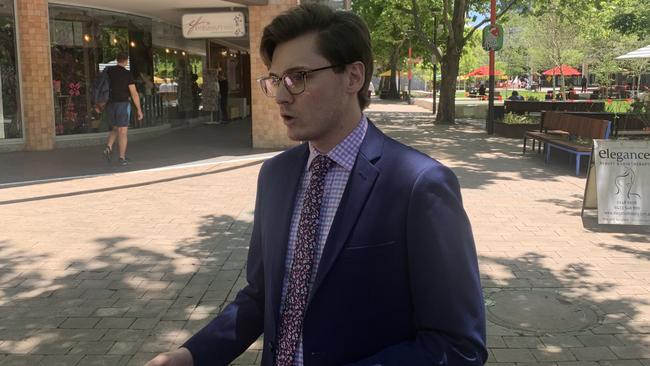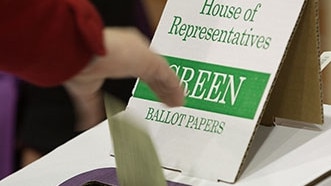Andrew Braddock, Johnathan Davis: Teen voting bill criticised by ACT Assembly committee
An ACT Legislative Assembly committee has released a report against the ACT Green’s bill to lower the voting age for territory elections.

Canberra Star
Don't miss out on the headlines from Canberra Star. Followed categories will be added to My News.
An ACT Legislative Assembly standing committee has recommended a bill to allow 16 and 17 year olds to vote should not be passed.
The Standing Committee on Justice and Community Safety (JACS) released its report into the Electoral Amendment Bill 2021 on Friday.
The report follows an inquiry into the bill which received 18 submissions alongside 438 responses to an online survey.
Of those submissions 11 were in favour of lowering the voting age, five expressed concern about lowering the voting age and three provided input without adopting a position for or against the bill.
The committee’s current members are Canberra Liberal MLA Peter Cain, ACT Labor MLA Marissa Paterson and Greens MLA Andrew Braddock; however during the MLA and An includes Jeremy Hanson MLA; yet Canberra Liberal’s MLA Jeremy Hanson and Greens MLA Jo Clay were previously members of the committee during the inquiry.
The bill was tabled by Greens MLA’s Andrew Braddock and Jonathan Davis on December 2 last year and if passed would make it compulsory for Canberrans aged 16 and over to vote in territory elections.

While the report does not endorse the bill it does call for the ACT Government to “explore ways to further engage young people in the democratic process.”
Under the heading “Committee Assessment of the Bill” the committee raised concerns about exposing 16 and 17 year olds who fail to vote to criminal penalties.
The report stated “no clear solution to this problem arose during the inquiry.”
“The proposal in the Bill to halve the prescribed penalty for a default notice issued to people aged 16 or 17 years who appear to have failed to vote in an election does not guarantee young people will not be exposed to criminal proceedings and more serious penalties,” the report said.
“Exempting young people from penalties, or waiving penalties for non-enrolment or non-voting, has the potential to create perceptions of inconsistency and inequality which may undermine respect for the electoral process.
“The committee is hesitant to introduce any changes to the Electoral Act that might erode community support for compulsory voting.”

Earlier sections of the report also cast doubt about young people’s input into the bill, stating only one written submission and only 46 participants in the online survey were between the ages of 12-25.
Additionally the report said “it is not clear from the explanatory statement and presentation speech whether the sponsors of the Bill consulted with young people outside ACT Greens membership in developing the Bill”.
A submission from the ACT Council of Social Services (ACTCOSS) Deputy Executive Officer Adam Poulter said the advocacy organisation welcomed the bill stating ACTCOSS was “entirely supportive of empowering young people to actively participate in democratic processes.”
However he stated ACTCOSS had concerns about penalties for disadvantaged young people who may fail to vote.
“(Fail to vote) fines should not only be capped at $10, but alternatives such as community service should be explored to ensure equitable outcomes for those that cannot afford to pay,” the statement said.
The submission also said if the bill were passed measures would need to be made to ensure lowering the voting age did not interfere with the campaign to raise the minimum age of criminal responsibility.
ACT Labor’s submission, written by ACT Labor Secretary Ash van Dijk, stated the party “supports compulsory voting and consideration should be given to allowing people 16 and 17 years of age to vote.”

One submission written by Canberra Liberals’ Divisional Director Kieran Douglas, written on behalf of the party, described the bill as a “poorly masked attempt by the Greens to increase their vote in ACT elections.”
While addressing the argument that teenagers paid taxes and had other civic responsibilities while not being able to vote, Mr Douglas wrote “Companies pay corporate tax and decisions are made that affect their business, however we do not give corporations a vote.”
A submission on behalf of the ACT Electoral Commission also criticised the bill citing legal and administrative issues that would arise if teenagers were able to vote.
Mr Braddock, who provided a dissenting report against the rest of the committee, said he was undeterred by the committee’s report.
“This is not the end of the Bill,” he said
“ The Committee process has provided good feedback from the community that will allow us to improve the Bill and bring it back to the Assembly for consideration.
“Young people have shown they want a voice when it comes to the decisions that impact their lives and their futures, and we owe it to them to keep campaigning on this issue.”




